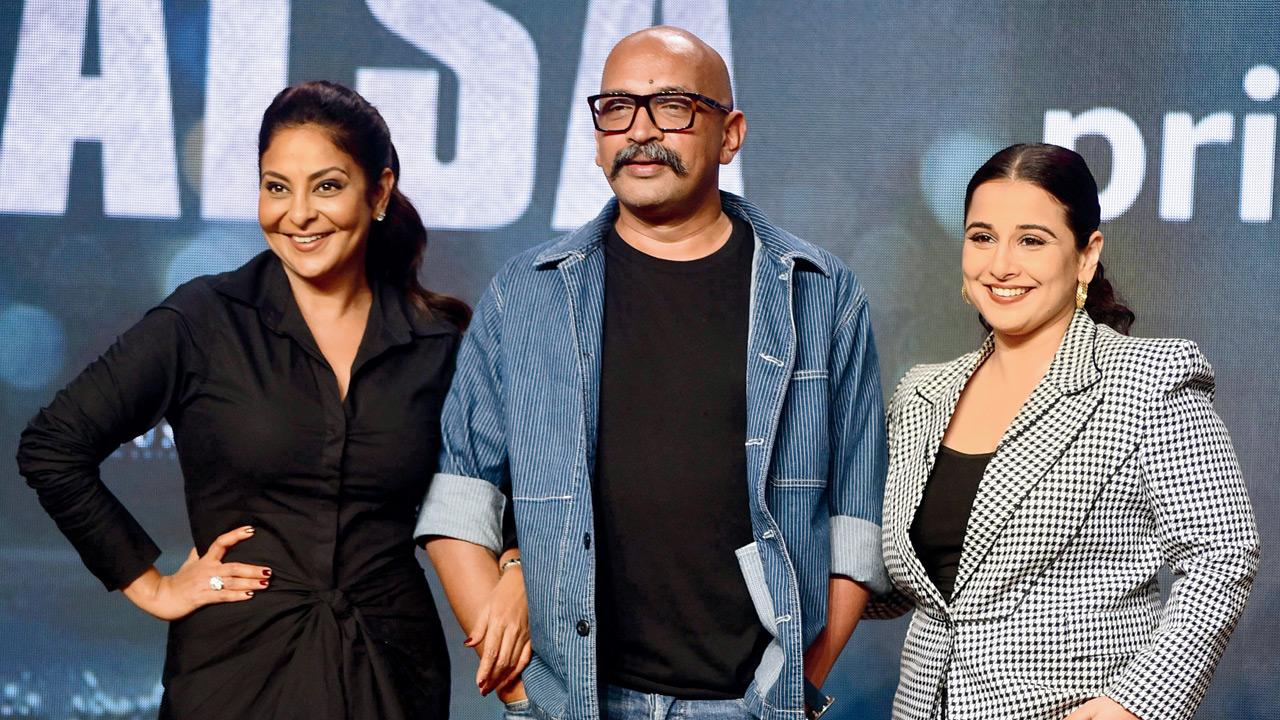I experienced the impostor syndrome; wondered how could Shefali Shah come on board within 24 hours-Suresh Triveni
8:05 AM
Posted by Fenil Seta

Rachana Dubey (BOMBAY TIMES; March 17, 2022)
It’s taken adman Suresh Triveni a period of five years to put together and craft the thriller Jalsa. The film features Vidya Balan, who also headlined the cast of his directorial debut, Tumhari Sulu, and Shefali Shah, whose work he has closely followed. The film revolves around an incident that impacts the lives of two women from different economic and social strata, which leads to a clash. The film premieres on Amazon Prime Video tomorrow in India and across 240 countries and territories worldwide.
Talking about the driving factors behind Jalsa, Suresh says, “One is the practical side, which comes down to ‘Tumhare paas Vidya aur Shefali ke dates hain, tum abhi shoot karlo!’ The second is that after Tumhari Sulu, there were various labels being attached to me and I had begun to take myself far too seriously. I took a break and got back to advertising for a while. I started working on some scripts; Jalsa was one of them. I realised that if an idea continues to talk to me even six months after I first thought of it, there is something there.”
Jalsa’s trailer, evidently, touches upon victim-blaming, class divide and the perceptions that are formed as a result, apart from several other topics. When asked if that was a conscious call, Suresh says, “Stories are glued together by conflicts, and that comes from some sort of a divide. Otherwise, we’d be in a neutral world with no stories to tell. Yes, victim-blaming is a part of the conversation in this film, but I do not believe in writing anything with an agenda. I’d find myself in another profession if I was doing that. This story has allowed itself to happen a certain way. And I am a huge believer in the term ‘conflict’, which fans so many things in a narrative. What you incur is your own take-away from a film.”
With a powerful combination of female actors in the film, starting with Vidya and Shefali, we wonder what Suresh had in mind as a brief for their roles and how he went about striking a fine balance between their characters and what they eventually get to convey through the film.
Bring this up, and Suresh says, “Shefali came on board after reading a much earlier draft of the film. I experienced the impostor syndrome because I’m a huge fan of her work, and how could she simply say yes to my project within 24 hours. I couldn’t believe it. I had narrated the film to Vidya before she came on board. Both these artistes are gut-oriented, and if they feel something is correct, it is so. Hence, my brief to them was to own the character they’re playing. As a director, I am not one to give micro-directions on what to do in a scene. Telling someone to own their job is a brilliant ploy to make them work at their best. Vidya’s character had to be someone who’s opaque, someone you can’t see through. You don’t know what they are saying, thinking and eventually, writing. I’ve seen such journalists. With Shefali, that brief was to bring a sense of pride in her character. If someone asks her, ‘Tum bai ho?’ She says, ‘Nahi, cook hoon.’ She even dresses up well to work because she’s working at a good place. Both these women have a sense of pride and opacity. You can’t decipher their minds easily.”
Both Tumhari Sulu and Jalsa have a strong female gaze. When asked how he has managed to get it right on both occasions, Suresh says, “I am no authority on gender-based gaze, but I do feel that a situation makes different people react differently — sometimes because of the gender and sometimes because of who they are as people. I don’t look at gender as a lens. In fact, the term ‘woman-centric’ is something I want done away with because when there are two men leading a story, it’s not a man-centric film, is it?”
This entry was posted on October 4, 2009 at 12:14 pm, and is filed under
Interviews,
Jalsa,
Shefali Shah,
Suresh Triveni,
Suresh Triveni interview,
Tumhari Sulu,
Vidya Balan
. Follow any responses to this post through RSS. You can leave a response, or trackback from your own site.
Subscribe to:
Post Comments (Atom)
Post a Comment